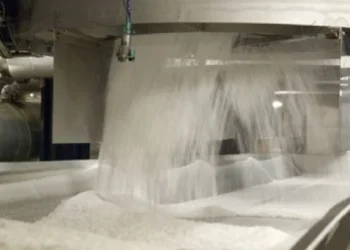Dangote Sugar Refinery Plc via the Nigerian Stock exchange recently declared a 33.0% Year to year growth in earnings to N29.8 billion for the financial year of 2020
The company also announced a dividend of N1.50 (vs N1.10 total dividend in 2019).
Dangote Sugar’s revenue expanded by 33.0% YoY amid strong volume growth in its 50 kg sugar offering (c.96.0% of total sales).
The company’s impressive outing amazed a significant number of stock pundits despite a surge in tax charges which partially offset some of the positive passthrough from border closures on earnings.
READ: Dangote Sugar Refinery: Revenue soars amid rising cost of sales
Gross margin expanded by 1.31ppts Year to Year to 25.08%, which points to the effects of recent cost-containment measures and the slump in global raw sugar prices in 2020 amid the COVID-19 pandemic.
The raw sugar price dropped to as low $0.09/lb in 2020 and traded c.$0.13/lb on average during 2020 (-4.38% YoY)
What you should know: Dangote Sugar Refinery Plc (the Company) was incorporated as a Public Limited Liability Company on 4 January 2005, commenced operation on 1 January 2006, and became quoted on the Nigerian Stock Exchange in March 2007.
Its current shareholding is 68% by Dangote Industries Limited and 32% by the Nigerian public.
The principal activity of the Group is the refining of raw sugar into edible sugar and the selling of refined sugar. The Group’s products are sold through distributors across the country.
READ: Buhari to commission phase 1 of brand new refinery this week
That being said, in spite of such impressive results from the N217 billion valued company experienced a surge in operational cost partly due to persistent FX scarcity.
Dangote Sugar reported a four-fold increase in finance cost, which can be largely attributed to the foreign exchange loss in its ordinary business operations, driven by persistent FX shortages and naira repricing at the exchange rate windows.
























Great result. But it would be good to know how successful their backward integration efforts have been in terms of producing the raw sugar locally via plantations. This would only help their numbers in the long term by reducing their foreign exchange risk and operating costs more importantly.